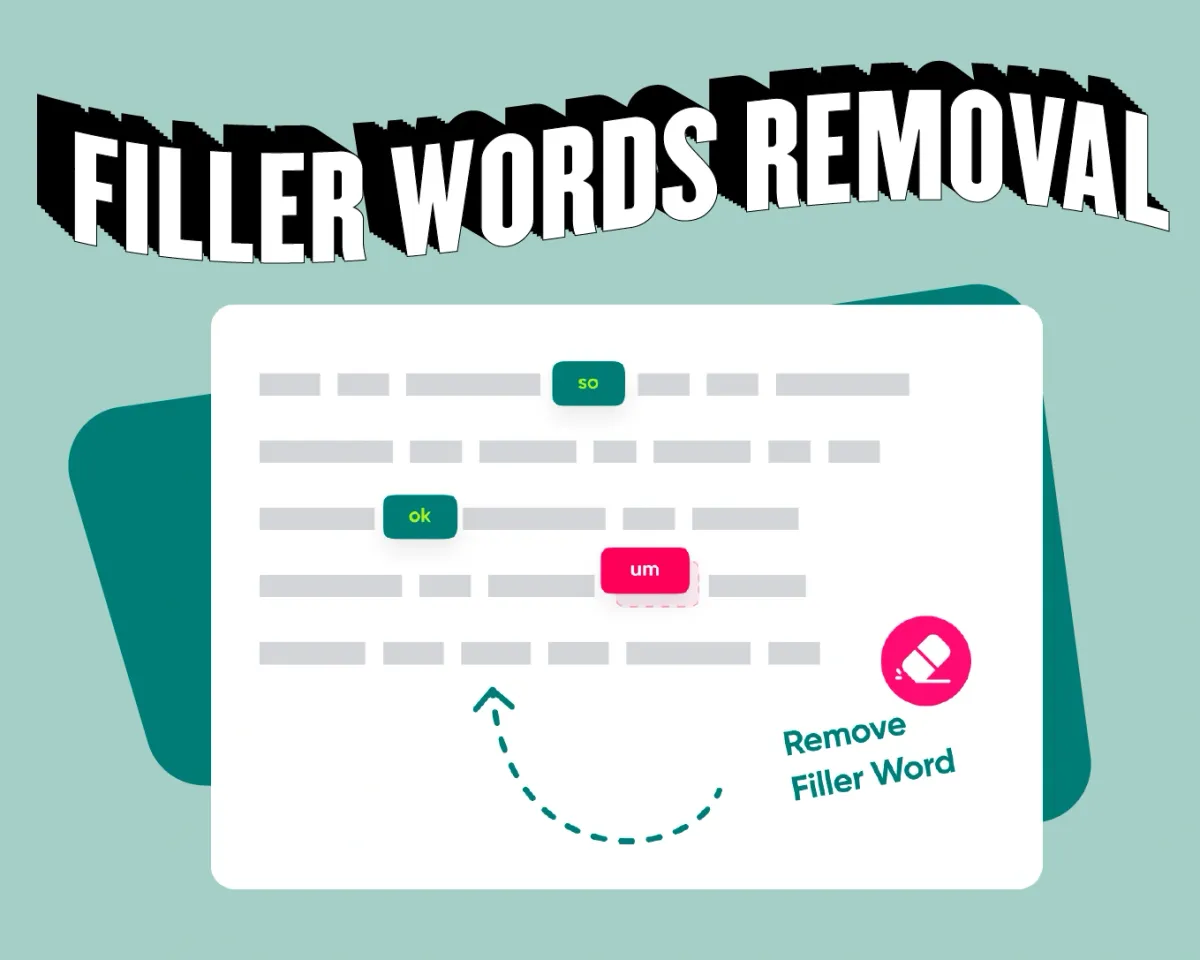We’ve all been there: you’re recording your podcast, or audio project, and suddenly you realize that you’re using a lot of filler words. These are the words that don’t really add anything to your audio, but somehow you keep using them anyway. In this blog post, we’re going to show you how to get rid of filler words in your audio easily, using an online filler words removal. So let’s get started!
What Are Filler Words?
Filler words are, quite simply, words that don’t really add anything to your audio. They’re often used as a way to fill up space, or to buy time while you think of what you want to say next. Some common examples of filler words include “um,” “uh,” “like,” and “you know.”
While there’s nothing wrong with using filler words in everyday conversation, they can be a real problem when you’re recording audio. That’s because filler words can make your audio sound unpolished, or even amateurish. If you’re trying to create a professional-sounding recording, then you’ll want to get rid of filler words before you hit the “publish” button.
Luckily, there’s an easy way to do this: by using an online filler words removal tool, like Podcastle.But before we tell you how to remove the filler words, let's understand why we use filler words on the first place
Why We Use Filler Words
You're in the middle of a conversation, and we can't think of the right word to say— a familiar scenario, isn't it? And what do you do in these cases? You fill the space with a word like "um" or "uh." But why do you do this?
It turns out that there are some psychological reasons behind it.
1. We Want to Win Time
For one thing, filler words can help us to buy time while we're thinking of what to say next. In other words, they give us a chance to gather our thoughts and formulate a response.
2. We're Trying to Sound More Polished
In some cases, we might use filler words in an attempt to sound more polished or eloquent. For example, you might be tempted to use the word “like” in your audio in order to sound more like a native speaker.
3. We're Trying to Connect With the Person We're Talking to
We might use filler words also as a way to connect with the person we're talking to. For example, you might start using filler words more when you're talking to someone you're attracted. You might start saying "um" or "uh" more often, or use the word "like" more than usual. This is your way of trying to make a connection with the person you like and make yourself seem more likable.
Even if you're not attracted to someone, it's still a way to show that you're connected to them. Filler words help to build rapport by showing that we're similar to the other person – you both use the same filler words.
4. We're Signaling that We're Engaged in The Conversation
Filler words can also serve as a way to signal that we're engaged in the conversation. For example, if you start to feel bored in a conversation, you might be tempted to use filler words more often. This is your way of trying to keep the conversation going, even if you're not really interested in what the other person has to say.
There's a reason why we all do it from time to time.
Why Are Filler ,Words Problematic in Audio?
Now that we've understood why we use filler words, let's see why they can be problematic in audio.
Filler Words Make Your Audio Sound Unprofessional
As we've already mentioned filler words can make your audio sound unpolished or even amateurish.So if you're really serious about creating a professional-sounding recording, then you definitely need to use a filler words removal tool
Filler Words Can Make Your Audio Harder to Understand
Another problem with filler words is that they can make your audio harder to understand. That's because when you use filler words, you're essentially adding extra syllables to your speech. And if you're using a lot of filler words, then your speech can start to sound jumbled and confusing.
Filler Words Can Annoy Your Listeners
Filler words can also be annoying for your listeners. If you're using too many filler words, then your listeners might start to get impatient, or even tune out completely.
Using Podcastle to Remove Filler Words
The best way to get rid of filler words from your audio is by using Podcastle. Podcastle is an online audio creation platform that helps you record, edit and enhance your audio all from one place. But for this blog post, we're going to focus specifically on its filler words removal tool. All you need to get rid of filler words is:
1. Download your audio file on Podcastle and hit Transcribe
2. Enable filler words detection
3. Remove any or all filler words you want
With Podcastle, you don't need to spend hours listening to your audio to understand where you used some unnecessary filler words. We'll automatically transcribe your audio file and find the filler words for you! You can then choose which ones to delete and which ones to keep.
But why would you ever need to keep filler words? Where there are a couple of reasons for that:
Why You Don't Need to Get Rid of All Filler Words
You don’t always have to use filler words removal. Filler words can actually be useful in some cases. As we've already mentioned, they help to signal to your interviewee that you're engaged in the conversation. In a way, this makes your listeners understand that the conversation is not one sided.
Filler words can also make your audio sound more natural. If you use too many pauses or have perfect grammar, your audio might sound stilted or unnatural. A few filler words here and there can actually help to make your audio sound more natural and conversational.
Of course, this doesn't mean that you should start using filler words all the time! But if you're trying to create a more natural-sounding recording, then a few filler words can actually be helpful.
The Bottom Line
Filler words can be problematic in audio because they can make your recording sound unpolished or even amateurish. They can also make your audio harder to understand and annoy your listeners. But you don't need to get rid of all filler words – a few here and there can actually be helpful.
If you want to get rid of filler words from your audio, then the best way to do it is by using the filler words removal feature of Podcastle. With Podcastle, you can easily remove any or all filler words from your audio with just a few clicks. So why not give it a try today?








